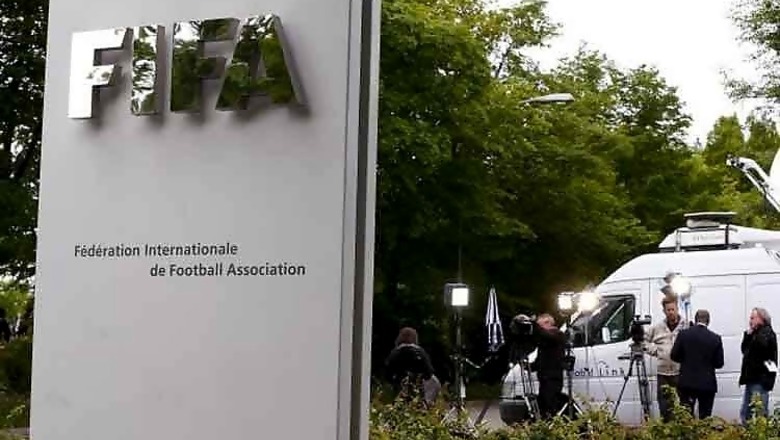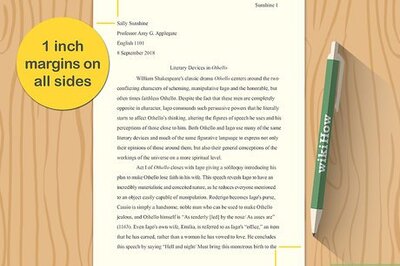
views
Swiss authorities investigating whether there was corruption in the awarding of World Cup hosting rights to Russia and Qatar are finding that a report produced by U.S. lawyer Michael Garcia at the end of an internal FIFA inquiry is of little value to their probe, according to a source close to investigations into the soccer governing body.
Swiss officials question whether Garcia's report, which has not been made public, has significant evidentiary value, said the source, who spoke to Reuters on the condition of anonymity. That is because Garcia, who was hired by FIFA, had no subpoena power, did not take sworn testimony, and was operating under FIFA's own ethical rules, which had little enforcement power behind them, the source added.
Switzerland's Attorney General Michael Lauber told reporters last week that the FBI, which has been conducting its own wide-ranging probe into corruption in FIFA and its affiliates, has not asked him or his office for a copy of the Garcia report, and he hadn't provided the U.S. authorities with one. A U.S. law enforcement official told Reuters earlier this month that the FBI did not have a copy of Garcia's report.
Garcia, a former top U.S. government prosecutor, was brought in by FIFA in 2012 to run its ethics committee's investigations, including examining allegations of corruption.
The report, submitted to FIFA last September, has been a mysterious part of the growing scandal because FIFA not only declined to publish it but instead released a summary by FIFA ethics judge Hans-Joachim Eckert that prompted Garcia to quit in protest in December. Eckert concluded that any impairment of integrity in the bidding process was only of "very limited scope" and it was far from reaching any threshold that would require reopening the bidding process for the two World Cups.
Garcia said at the time that the summary contained misrepresentations and that he had lost confidence in the independence of Eckert. He also criticized the "lack of leadership" in FIFA, and said he couldn't change the organization's culture.
Garcia was not available for comment and is declining media interviews about FIFA, a spokeswoman for Garcia's law firm, Kirkland & Ellis, said on Tuesday.
Spokespeople for U.S. prosecutors and for the FBI declined to comment on Tuesday.
Eckert's summary stresses that Garcia's probe had major limitations because of the lack of subpoena powers.
For example, several former members of FIFA's 24-strong executive committee, which made the World Cup decisions, either declined or did not respond to requests for interviews or to provide written answers to questions. In addition, the Russian bid committee only made a limited number of documents available because the computers it had used were leased, then returned to their owner and destroyed after the award, the summary said.
The Russian part of the investigation was handled by Garcia's deputy, Cornel Borbely, because Moscow had banned Garcia from entering the country in retaliation for U.S. sanctions imposed in response to Russia's annexation of Crimea.
The executive committee voted in 2010 to give Russia the 2018 World Cup hosting rights and Qatar the tournament in 2022. That was despite a warning from a FIFA evaluation team before the vote that Qatar and Russia carried higher operational risk than the other seven bidders, such as England and the United States.
The competition to host a World Cup, which is held every four years, is fierce as it is the most widely viewed sporting event in the world and carries enormous prestige and the potential for economic benefits.
The troubles facing FIFA worsened dramatically on May 27 when U.S. prosecutors unveiled the indictment of nine current and former FIFA officials and five corporate executives for allegedly running a criminal enterprise that involved more than $150 million in bribes over 24 years.
Separately, FIFA lodged a criminal complaint with the Swiss authorities last November concerning the "possible misconduct of individual persons" in connection with the awarding of the World Cup rights. Around that time, FIFA President Sepp Blatter, who earlier this month announced he would be stepping down, personally contacted Lauber's office and said he would be sending it the Garcia report, the source said. The report was received not long afterwards.
In March, Lauber's office formally opened its investigation into possible corruption in the World Cup awards.
Sources familiar with the investigation on both sides of the Atlantic say they are unsure why the FBI did not seek a copy of the Garcia report, even if it contained little of consequence to the U.S. probe.















Comments
0 comment